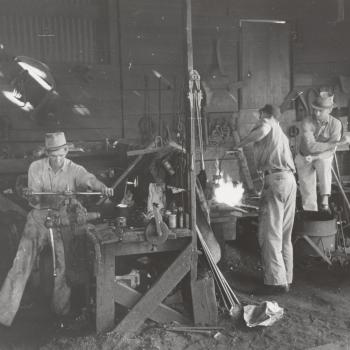During his acceptance speech this summer, presidential candidate Joe Biden included an inspiring quotation from a play by Seamus Heaney (1939-2013), an Irish poet. The quote is about hope. It comes from The Cure at Troy (Farrar, Straus, 1991), which is Heaney’s 81-page rewrite of Philoctetes by Sophocles (497 BC-406 BC).
Late in Heaney’s play the Chorus speaks these lines:
History says, Don’t hope
On this side of the grave.
But then, once in a lifetime
The longed-for tidal wave
Of justice can rise up
And hope and history rhyme.
I don’t know whether or not Biden put those lines into the context of Sophocles’ ancient drama. (I met then Senator Biden about 40 years ago over dinner with students from my college. We chatted about foreign affairs, not about Greek tragedy.)
Philoctetes is about the protagonist’s dilemma: Can he forgive his Greek compatriots for abandoning him. At stake is the outcome of the war between the Greeks and Troy because the fates say he must return to his company in order for them to prevail over Troy. The play, like the other six tragedies of Sophocles, is thus also about the role of fate. Either Philoctetes with his special weapon heeds fate and returns or he remains in a deserted place suffering recurring pain from a wound. Mostly he doesn’t want to return because his escorts have deceived him and they represent the very army that abandoned him. Philoctetes wavers but is determined not to rejoin the battlefield. Then the Chorus speaks the lines quoted by Biden (as above) and in a subsequent verse, they say:
So hope for a great sea-change
On the far side of revenge.
Believe that a further shore
Is reachable from here.
Believe in miracles
And cures and healing wells.
Suddenly, Hercules in divine form affirms the Chorus: “Go, Philoctetes…and capture Troy.” And in the process of cooperating with the fates, Hercules says, you will be cured.
Most of us equate hope with fate, luck or chance. We want good luck but we presume that we are unable to influence it. The common assumption is that hope (fate or luck) does not rhyme with or reside in history, as in “I hope I win the Lotto.” We likewise reduce God to a capricious divinity, as in “I hope God saves me from this virus.” Or, “I hope I get into heaven.”
God does not act on whims. Hope is not a matter of luck. Hope is a confident virtue. Vaclav Havel (1936-2011) was the last president of Czechoslovakia and the first president of the Czech Republic. “Hope is not prognostication,” he writes in Disturbing the Peace (Alfred Knopf, 1990). Hope “is an orientation of the spirit, an orientation of the heart… Hope is defiantly not the same thing as optimism. It is not the conviction that something will turn out well, but the certainty that something makes sense, regardless of how it turns out.”
Hope and history can rhyme. We make informed decisions in confidence. And, as Havel says, the more that our hope considers the well-being of others, “the deeper the hope is.”
Droel edits INITIATIVES (PO Box 291102, Chicago, IL 60629), a newsletter on faith and work.










